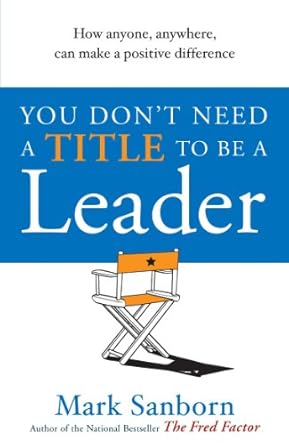INTRODUCTION
If you could master just one skill that could transform your career, relationships, and influence—what would it be?
For many successful leaders, entrepreneurs, and communicators, the answer lies in people skills.
That’s why Dale Carnegie’s How to Win Friends and Influence People remains one of the most influential self-help books of all time. Published in 1936, it has sold over 30 million copies worldwide and continues to guide anyone who wants to connect better, persuade ethically, and leave a lasting positive impact.
If you haven’t read it yet, you can grab a copy here: How to Win Friends and Influence People
This isn’t just a book review—it’s a deep dive into Carnegie’s core principles, why they still matter in 2025, and how you can start applying them right now.
Why Dale Carnegie Wrote This Book
In the early 20th century, Carnegie observed something powerful:
People with strong communication and relationship skills were outperforming those with higher technical knowledge.
His workshops and public speaking classes became so popular that he decided to condense his teachings into a single book. How to Win Friends and Influence People became a blueprint for building genuine rapport, influencing without manipulation, and leading with empathy.
Core Principles from How to Win Friends and Influence People
Carnegie breaks down his ideas into practical, actionable strategies. Here’s a breakdown of the most important lessons and how you can apply them today.
Part 1: Fundamental Techniques in Handling People
- Don’t Criticize, Condemn, or Complain
Criticism often puts people on the defensive. Carnegie advises finding ways to encourage and guide rather than blame.
“Any fool can criticize, condemn, and complain—but it takes character and self-control to be understanding and forgiving.”
- Give Honest and Sincere Appreciation
We all crave recognition. The key is to make it genuine and specific so it truly resonates. - Arouse in the Other Person an Eager Want
People are more receptive when they see what’s in it for them. Align your goals with their needs.
Part 2: Six Ways to Make People Like You
- Become Genuinely Interested in Other People
Show curiosity about their passions, struggles, and achievements. - Smile
A simple smile breaks down walls and sets a positive tone. - Remember That a Person’s Name is to That Person the Sweetest Sound
Make an effort to remember names—it’s one of the quickest ways to build trust. - Be a Good Listener
Encourage others to talk about themselves and really hear what they’re saying. - Talk in Terms of the Other Person’s Interests
Conversations become engaging when they center on the other person’s passions. - Make the Other Person Feel Important—and Do It Sincerely
This is the cornerstone of Carnegie’s philosophy: authentic respect.
Part 3: Win People to Your Way of Thinking
Carnegie’s influence strategies are rooted in empathy and collaboration:
- Avoid arguments
- Show respect for others’ opinions
- If you’re wrong, admit it quickly
- Begin in a friendly way
- Let the other person feel the idea is theirs
These techniques still work in business negotiations, leadership, and even everyday conversations.
Part 4: Be a Leader Without Offense or Resentment
Great leaders inspire rather than intimidate. Carnegie recommends:
- Praise before pointing out mistakes
- Ask questions instead of giving direct orders
- Give others a fine reputation to live up to
By leading with encouragement, you help others grow without damaging their confidence.
Why This Book Still Matters in 2025
In our hyper-connected, fast-paced world, emotional intelligence and communication skills are more valuable than ever. Whether you’re a manager, entrepreneur, or student, the ability to win friends and influence people opens doors to opportunities, collaborations, and long-term success.
Modern networking, online branding, and leadership are all built on the principles Carnegie taught nearly a century ago.
Practical Applications Today
Here’s how you can use Carnegie’s lessons right now:
- In Business: Use sincere appreciation to boost employee morale.
- In Networking: Remember names and details to stand out in conversations.
- In Negotiations: Find mutual benefits instead of pushing your own agenda.
- In Leadership: Build influence by empowering others.
👉 If you’re ready to take these skills to the next level, get your copy of How to Win Friends and Influence People and start practicing these timeless strategies.
Criticism & Misinterpretations
Some critics argue that Carnegie’s methods can be manipulative. But the book’s core message is about authenticity, not trickery. The goal is to genuinely value others, not fake interest for personal gain.
Inspiring Examples from the Book
- A salesman doubling his sales by remembering customer birthdays
- A manager transforming a hostile team by praising efforts before addressing mistakes
- Ordinary people becoming extraordinary leaders simply by improving their listening skills
Key Takeaways
- People crave respect and recognition.
- Listening is more powerful than talking.
- Genuine interest builds trust faster than persuasion.
- Influence comes from empathy, not authority.
Final Thoughts
Dale Carnegie’s How to Win Friends and Influence People isn’t just a book—it’s a manual for better living. Its lessons are timeless because they’re rooted in human nature.
If you want more meaningful relationships, stronger influence, and better leadership skills, Carnegie’s advice is worth applying every single day.
📚 Ready to change the way you connect with others? Order your copy now and start winning friends the right way.
“Start Your Website Journey Today – Exclusive Hostinger Discounts!”

Turn Any Idea into Viral,
Jaw-Dropping AI Videos in Seconds!










